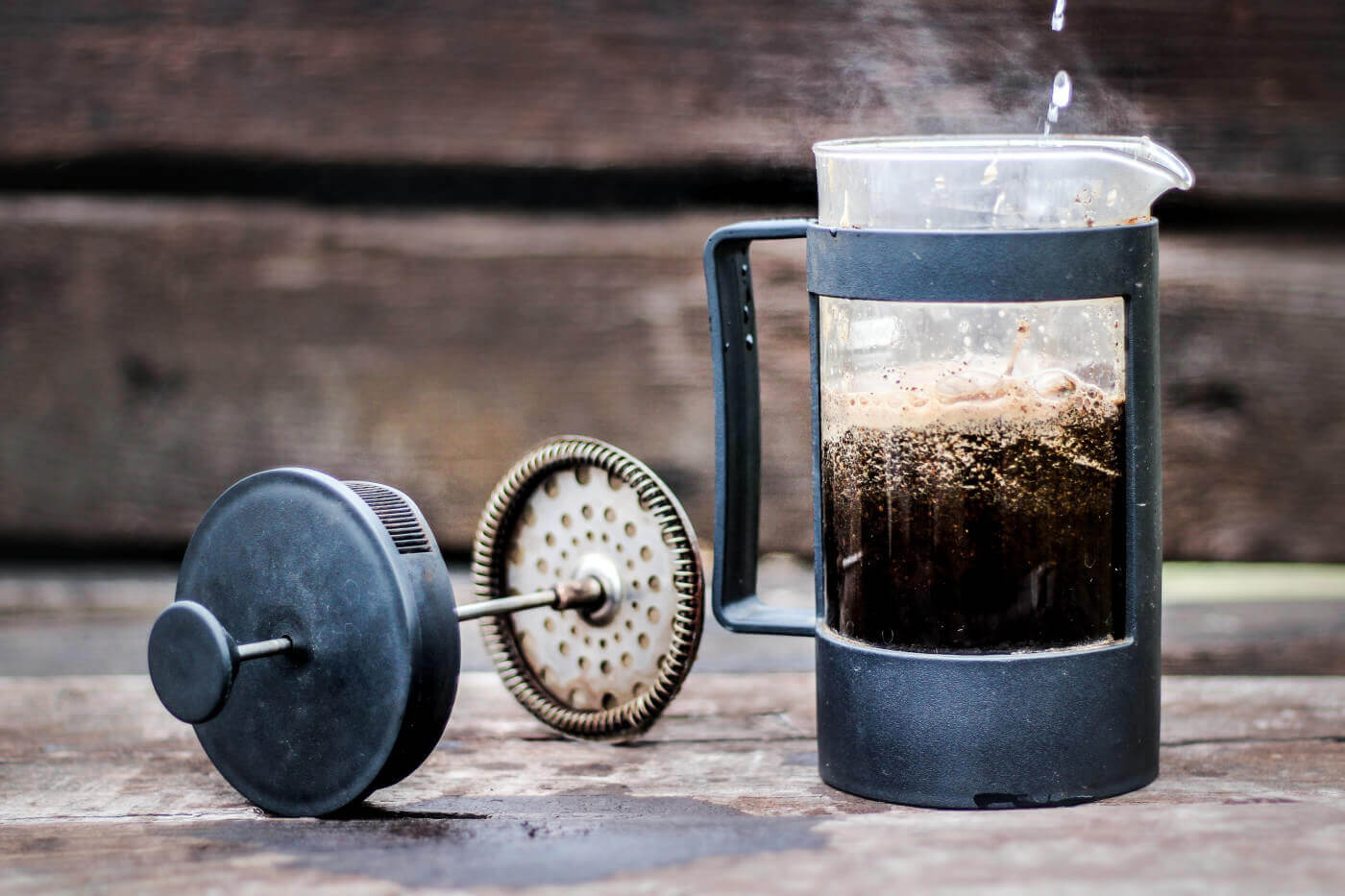Plant enthusiasts are always on the lookout for ways to give their garden a little extra love. Coffee grounds are often touted as a great addition to a compost pile and soil structure, but did you know that not all plants are fans?
In this article, we'll dive into what plants are and aren’t acid-loving plants and why so you can keep your garden thriving with natural fertilizer like coffee grounds. Let's get started!
Why Don't Some Plants Like Coffee Grounds?
When it comes to adding coffee grounds in the garden, it's important to understand how plants benefit from this in the first place. It’s worth it to learn how coffee grounds can affect plant growth and soil structure. Coffee grounds contain several compounds that can influence growth, both positively and negatively.
Here are some key points to consider:
Caffeine Content
Coffee grounds contain caffeine, which can be harmful to some plants. Caffeine acts as a natural pesticide, which can inhibit growth, particularly for seedlings and young plants. This is especially true for plants that are sensitive to caffeine and tolerate acidic soil poorly.
Allelopathic Chemicals
Coffee grounds have allelopathic properties, meaning they can release chemicals that inhibit the growth of nearby plants. While spent coffee grounds can help with managing garden pests and suppressing weeds, it may also negatively impact desirable plants.
Nutrient Composition
Coffee grounds are rich in nitrogen, one of the essential nutrients for plant growth. However, they also contain other elements like potassium and phosphorus in smaller amounts. While nitrogen can promote lush, green growth, an excess can lead to imbalances in the garden soil, particularly if the soil acidity or pH balance isn't managed properly.
Microbial Activity
The introduction of coffee grounds can alter the microbial balance in the soil. While some beneficial microorganisms thrive on coffee grounds, others may be suppressed. This can affect the garden’s natural soil conditions, which in turn impacts plant health.
Soil Structure
Coffee grounds can improve soil structure by adding organic matter, which helps with aeration and water retention. However, if not properly balanced with other organic materials in the compost pile, they can lead to compacted soil, which restricts root growth and can hinder plants' ability to retain moisture.
Understanding these factors can help you make informed decisions about adding coffee grounds to your garden. By balancing the benefits and drawbacks, you can optimize growth and ensure your plants thrive.
Which Plants Are Negatively Affected By Coffee Grounds?
When it comes to adding coffee grounds in the garden, not all plants thrive. Some plants can actually suffer from the addition of coffee grounds to their soil. Here are a few types of plants that generally don't do well with coffee grounds:
Vegetables
While some plants in your vegetable garden might benefit from the nutrients in coffee grounds, others can be negatively affected. For example:
- Tomatoes: They are particularly sensitive to acidic soil and can experience stunted growth.
- Asparagus: Asparagus prefers alkaline soil over acidic soil and could be negatively impacted by coffee grounds.
Flowering Plants
Certain flowering plants can also react poorly to coffee grounds:
- Geraniums: Using coffee grounds on geranium seeds could inhibit plant growth.
- Azaleas: Although they tolerate acidic soil, the caffeine in coffee grounds could cause root rot and other fungal diseases.
Herbs
Many herbs prefer a more neutral or slightly alkaline soil and can be sensitive to the changes coffee grounds bring:
- Lavender: This herb thrives in slightly alkaline soil and can suffer in acidic soil.
- Rosemary: Similar to lavender, rosemary prefers a more neutral to slightly alkaline soil and might not do well with coffee grounds.
By keeping these plants in mind, you can ensure that your garden thrives without the unintended negative effects of coffee grounds.
How Do Coffee Grounds Impact Soil Ph?
When it comes to adding coffee grounds in the garden, one of the most common questions we get is about how they affect soil pH. It's a great question because soil pH plays a crucial role in plant health and nutrient uptake. Let's dive into the details.
First off, coffee grounds are often thought to be highly acidic. However, used coffee grounds are actually closer to neutral on the pH scale, typically ranging from 6.5 to 6.8.
Fresh coffee grounds, on the other hand, are more acidic, with a pH around 5.0. This difference is important to note because it can influence how you use them in your garden.
So, what does this mean for your soil? Adding fresh grounds can lower the pH of your soil, making it more acidic. This can be beneficial for acid-loving plants like blueberries, azaleas, and rhododendrons. However, for most other plants, a more neutral pH is preferable.
When you add used coffee grounds to your soil, the impact on pH is minimal. This makes them a safer bet for a wider variety of plants. However, it's always a good idea to test your soil pH before making any significant amendments. You can easily find soil pH testing kits at garden centers or online.
Here are a few tips for using coffee grounds to manage soil pH:
- For Acid-Loving Plants: Feel free to use fresh coffee grounds, but do so sparingly. A thin layer around the base of the plant should suffice.
- For Neutral pH Plants: Stick to used coffee grounds. They provide organic matter without significantly altering the soil pH.
- Testing is Key: Always test your soil pH before and after adding coffee grounds to monitor any changes.
By understanding how coffee grounds affect soil pH, you can make more informed decisions about how to use them in your garden.
Whether you're aiming to acidify your soil or simply add some organic matter, knowing the pH levels of your coffee grounds as well as other compost materials can help you achieve the best results for your plants.
Can Coffee Grounds Inhibit Plant Growth?
When it comes to using coffee grounds in the garden, it's important to understand that while they can offer some benefits, they also have the potential to inhibit growth. Here are some key factors to consider:
Allelopathic Properties
Coffee grounds contain allelopathic chemicals, such as caffeine, which can inhibit the growth of other plants. This is nature's way of reducing competition, but it can be detrimental in a garden setting where we want all our plants to thrive, especially sensitive plants.
Nitrogen Immobilization
Fresh grounds are rich in nitrogen, but as they decompose, they can temporarily tie up nitrogen in the soil. This process, known as nitrogen immobilization, can deprive plants of the nitrogen they need for healthy growth.
Soil Compaction
When used in large quantities, coffee grounds can compact and create a dense layer that restricts water and airflow to plant roots. This can lead to poor root development and stunted growth.
pH Imbalance
While coffee grounds are often touted for their ability to acidify soil, they can sometimes create an imbalance. If the soil becomes too acidic, it can limit the availability of essential nutrients, leading to poor plant health.
Fungal Growth
Coffee grounds can promote the growth of certain fungi, which might not always be beneficial. Some fungi can compete with plants for nutrients or even cause diseases.
Understanding these factors can help you make more informed decisions about adding coffee grounds to your garden. By being aware of the potential downsides, you can take steps to mitigate them and ensure your plants remain healthy and vibrant.
Are There Any Benefits To Using Coffee Grounds In The Garden?
Hey there, fellow garden enthusiast! Let's chat about the bright side of using coffee grounds in your garden. While we've talked about some plants not being fans, there are definitely some perks to using coffee grounds that you might find interesting.
First off, coffee grounds can be a fantastic addition to your soil structure. They help improve the texture, making it crumblier and easier for roots to grow. This is especially beneficial for heavy clay soils that tend to compact easily. By adding coffee grounds, you can enhance aeration and drainage, which is a win-win for your plants.
Another great benefit is the nutrient content. Coffee grounds are rich in nitrogen, which is a crucial nutrient for plant growth.
Here's a quick breakdown of what coffee grounds typically offer:
Nutrient | Percentage |
Nitrogen (N) | 2.0% |
Phosphorus (P) | 0.6% |
Potassium (K) | 0.6% |
These essential nutrients can help boost the overall health of your plants, promoting lush, green foliage and robust growth. Plus, as the coffee grounds break down, they release these nutrients slowly, providing a steady supply over time.
Water retention is another area where coffee grounds shine. When mixed into the soil, they can help retain moisture, which is particularly useful during dry spells. This means you might not have to water your plants as frequently, saving you time and effort.
Lastly, coffee grounds can act as a natural mulch. When spread on the soil surface, they help suppress weeds, regulate soil temperature, and reduce evaporation. Just be sure to apply them in a thin layer to avoid any potential issues with mold or compaction.
So, while coffee grounds might not be everyone's cup of tea (pun intended), they certainly have their place in the garden. Give them a try and see how they can benefit your green space!
What Are The Signs That A Plant Is Reacting Poorly To Coffee Grounds?
When it comes to figuring out if coffee grounds are causing issues for your plants, there are a few key signs to watch for. Here are some indicators that your plants might not be happy with the addition of coffee grounds:
- Yellowing Leaves: One of the first signs that something is off is yellowing leaves. This can indicate a nutrient imbalance or pH issue caused by the coffee grounds.
- Stunted Growth: If your plants aren't growing as vigorously as they should be, coffee grounds might be the culprit. They can sometimes inhibit root development, leading to slower overall growth.
- Wilting: Even if you're watering regularly, coffee grounds can sometimes affect the soil's ability to retain moisture properly, causing your plants to wilt.
- Leaf Drop: If you notice leaves falling off your plants more than usual, it could be a sign that the coffee grounds are creating an unfavorable environment.
- Poor Flower or Fruit Production: For flowering and fruiting plants, a lack of blooms or fruits can indicate that the coffee grounds are interfering with their nutrient uptake.
If you notice any of these symptoms, it might be time to reconsider how you're adding coffee grounds to your garden. Adjusting the amount or frequency of application, or even switching to a different soil amendment, can help your plants get back on track.
How Often Should Coffee Grounds Be Applied To Plants?
When it comes to using coffee grounds in your garden, moderation is key. Adding coffee grounds too frequently can lead to issues such as soil compaction, nutrient imbalances, and even plant damage.
Here are some guidelines to help you determine the right frequency for adding coffee grounds:
- Monthly Application: For most plants, a monthly application of coffee grounds is sufficient. This allows the soil to benefit from the nutrients without overwhelming the plants.
- Thin Layer: When you do apply coffee grounds, make sure to spread them in a thin layer. A thick layer can create a barrier that prevents water and air from reaching the roots.
- Mix with Other Materials: To avoid any potential negative effects, mix coffee grounds with other organic materials like compost or mulch. This helps to balance the nutrient content and improve soil structure.
- Observe Plant Response: Pay attention to how your plants respond to the coffee grounds. If you notice any signs of distress, such as yellowing leaves or stunted growth, reduce the frequency of application.
- Seasonal Considerations: During the growing season, you might want to apply coffee grounds more frequently, such as every two weeks, to support vigorous growth. In the dormant season, reduce the frequency to once every two months.
By following these guidelines, you can make the most of coffee grounds in your garden without causing harm to your plants. Every garden is unique, so it's important to adjust based on your specific conditions and plant needs.
Are There Any Alternatives To Using Coffee Grounds For Soil Enrichment?
When it comes to enriching your soil, there are plenty of alternatives to coffee grounds that can provide similar benefits without the potential downsides. Here are some great options you might consider:
Composted Kitchen Scraps
- Vegetable Peelings: Rich in nutrients and break down quickly.
- Fruit Scraps: Adds organic matter and can help improve soil structure.
- Eggshells: Great for adding calcium to the soil.
Manure
- Cow Manure: Well-rotted cow manure is an excellent source of nutrients.
- Chicken Manure: High in nitrogen, but should be composted first to avoid burning plants.
- Horse Manure: Adds organic matter and nutrients but can contain weed seeds.
Green Manure
- Cover Crops: Plants like clover, alfalfa, and rye can be grown and then tilled into the soil to add organic matter and nutrients.
- Legumes: These plants fix nitrogen in the soil, making it available for other plants.
Leaf Mold
- Decayed Leaves: Collect fallen leaves, let them decompose, and use the resulting leaf mold to improve soil structure and water retention.
Grass Clippings
- Fresh Clippings: Can be used as mulch to add nitrogen to the soil.
- Dried Clippings: Mix into the compost pile or use as a mulch to improve soil fertility.
Wood Ash
- Fireplace Ash: Adds potassium and can help raise soil pH, but should be used sparingly.
Seaweed
- Fresh or Dried Seaweed: Rich in trace minerals and can be used as mulch or composted.
By exploring these alternatives, you can find the perfect soil amendment that suits your garden's needs without the potential drawbacks of coffee grounds. Happy gardening!
Optimizing Coffee Grounds for a Thriving Garden
In this article, we've explored why some plants don't like coffee grounds and identified which plants are negatively affected. We've also delved into how coffee grounds impact soil pH, potential growth inhibition, and the benefits and best practices for adding coffee grounds to compost.
By understanding these factors, you can make informed decisions about whether to use coffee grounds in your garden and how to do so effectively. Happy gardening!





